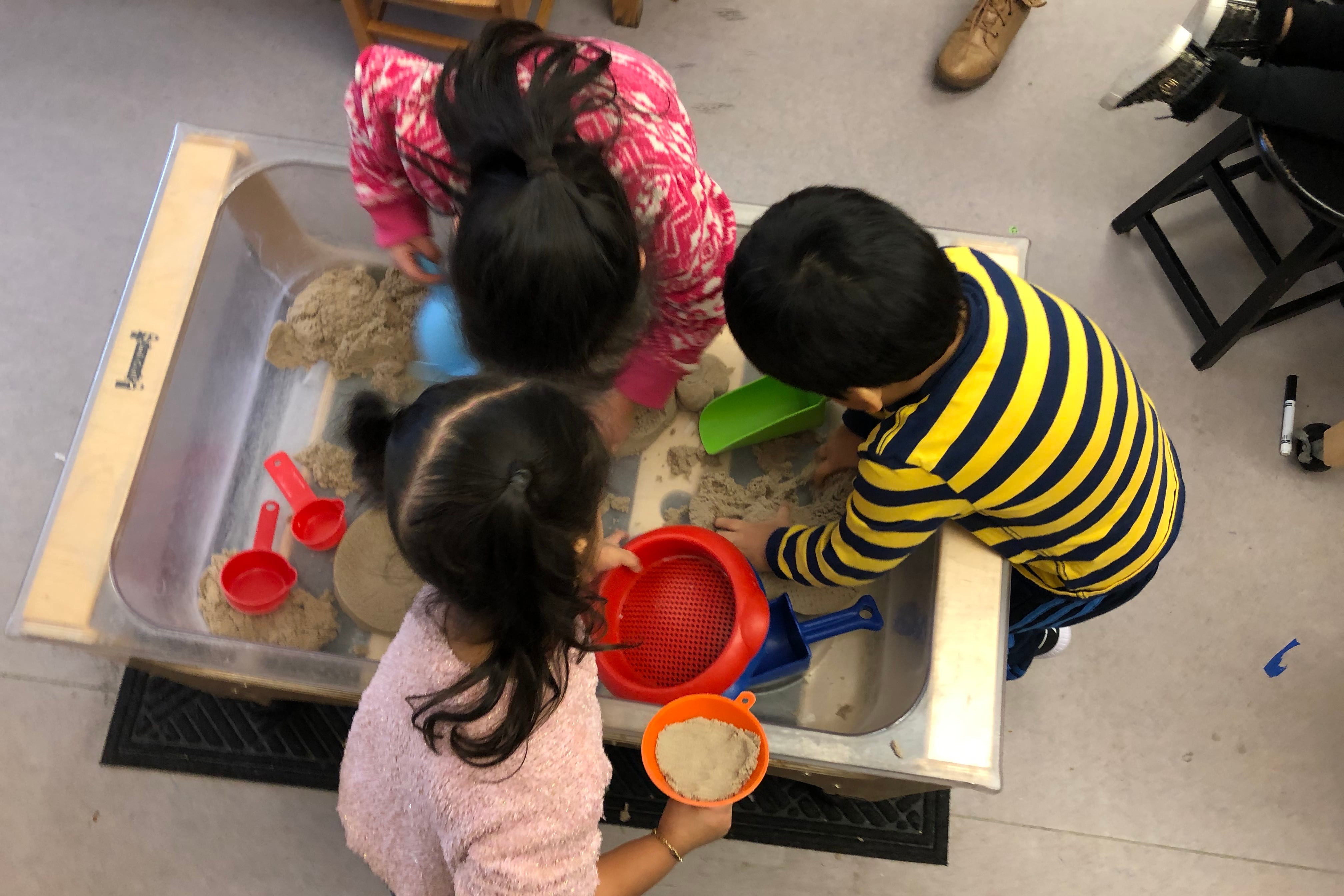Sign up for Chalkbeat Chicago’s free daily newsletter to keep up with the latest news on Chicago Public Schools.
Amy Blythe stays up at night thinking about what will happen to kids and families if federal funding is cut for Head Start, an early childhood education program serving low-income families.
Blythe is the assistant vice president of Early Learning Services at Easterseals, which serves 1,500 kids throughout Chicagoland and Rockford. Some of those children receive Head Start services through community-based programs her organization partners with.
Head Start providers such as hers are able to support families with formula, diapers, and food throughout the day and in cases of an emergency, such as a house fire or when a family can’t find transportation to get to work, Blythe said. But since President Donald Trump took office in January, there have been disruptions to child care services for families and kids.
“That’s what keeps me up at night, what will happen to those children and those families if we’re not there?” said Blythe.
Blythe and other Head Start providers in Illinois are concerned about the future of the 60- year-old federal program that serves children from birth to 5. Almost $500 million flowed from the federal government directly to Illinois Head Start providers during fiscal year 2024, according to the Illinois Head Start Association.
The Trump administration is reportedly considering a budget proposal that would eliminate Head Start, according to a report from USA Today published Friday. That comes after the U.S. Department of Health and Human Services closed the Chicago-based regional office that provides technical support and funding to child care providers throughout Illinois and several other states in the Midwest earlier this month.
Early childhood education providers are increasingly on edge after many were unable to access funds for their day-to-day operations when the federal government put a freeze on all grants in January. Even when the decision was reversed after a few days, child care providers were still having issues in February. In some states, providers had to temporarily shut their doors to families.
The Illinois Head Start Association noted that the Head Start program serves over 28,000 children and has employed almost 9,000 people across the state. Across the country, the Head Start program was funded to serve about 780,000 children during fiscal year 2023.
Most kids who are enrolled in Head Start programs come from low-income families whose income is at or below the poverty level or receive Temporary Assistances for Needy Families, Supplementary Security Income, or Supplemental Nutrition Assistance Program. For a family of four, the income would have to be $32,150 according to the U.S. Department of Health and Human Services 2025 rules.
Julissa Cruz, vice president of community-based advocacy at the Carole Robertson Center which receives Head Start funding, said she believes there is “a lack of understanding on what early learning is and how it impacts a child’s life, how it prepares young children for kindergarten, how it supports families to be able to participate in the workforce.”
The Carole Robertson Center serves about 15,000 kids and families across Chicago through partnerships and at three centers in Little Village, North Lawndale, and Albany Park. Despite recent changes to the federal government, there has not been a disruption in services. Cruz said she remains hopeful that lawmakers will continue to see the importance of Head Start.
“This is a program that exists in urban communities, suburban communities, and rural communities, so every elected official likely has a Head Start program in their community,” said Cruz.
Marcy Mendenhall, chief executive officer of SAL Community Services based in the Quad Cities near the Iowa border, said the Trump administration’s plan to dismantle Head Start “has nothing to do with best practice, nothing to do with children outcomes, and nothing to do with best interests of children.”
Mendenhall’s organization provides Early Head Start services to almost 168 kids in Rock Island, Henry, and Mercer counties out of the 700 kids they serve. She said she is not concerned about child care centers that her organization operates closing because of their partnerships. However, Mendenhall feels like this is “the time for advocacy” because child care programs are important for student learning and provide a safe environment while children are developing.
For over six decades, Head Start has received bipartisan support in Congress and around the state. However, Lauri Morrison-Frichtl, executive director of Illinois Head Start Association, worries whether Republican lawmakers in Congress will continue to speak up for Head Start under the current administration.
“When it comes to push and shove and Trump hanging over them, will they actually stand for what they believe in and know it’s good for their district? ” she said.
Gov. J.B. Pritzker has been an advocate for increasing access to child care for families across the state. He created the Smart Start Illinois initiative to expand early childhood education programs. Pritzker’s $53 billion budget proposal for fiscal year 2026 included a $10 million increase for child care programs in the state, such as Early Intervention, which serves children with disabilities and $85 million for Child Care Assistance Program, which helps low-income families pay for child care.
However, it would be hard for the state to come up with the money to fund Head Start programs in Illinois if the Trump administration eliminates the program, according to Morrison-Frichtl Illinois is facing a $3 billion budget deficit and the situation could get worse if federal funding is pulled from the state.
In Illinois, state lawmakers last year approved a plan by the governor to create the Illinois Department of Early Childhood to streamline funding and coordination around all early childhood education and child care programs.
A spokesperson for the Governor’s office said that while Head Start providers are able to access federal funding now, the office is “deeply concerned about the potential for disruption moving forward based on the actions of the Trump administration.”
Samantha Smylie is the state education reporter for Chalkbeat Chicago covering school districts across the state, legislation, special education and the state board of education. Contact Samantha at ssmylie@chalkbeat.org.






